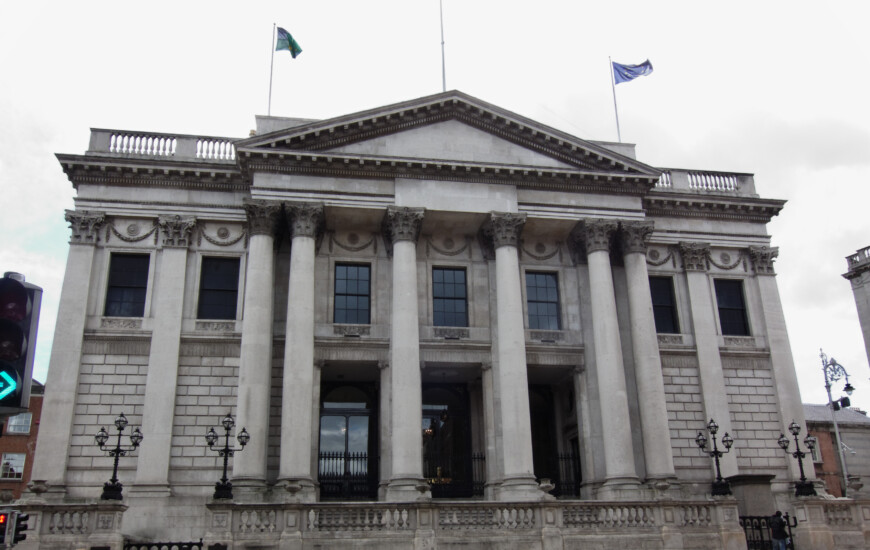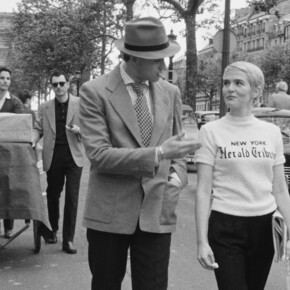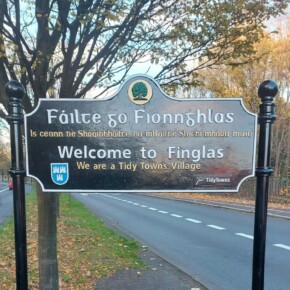O’Connor calls government’s bluff on mayoral vote
Mike Finnerty 30 Apr 2025
Green councillor Oisin O’Connor has criticised the government for being vague on when they plan to give Dubliners the chance to vote on a directly-elected mayor.
In other major European capital cities such as London, Paris and Rome, citizens have the chance to directly elect their mayors, but Dublin is an outlier in the process, and indeed, the powers of the Lord Mayor are lacking compared to a directly-elected mayor.
Limerick became the first city in Ireland to elect a directly-elected mayor last year (independent candidate John Moran won from a contested field of 15 candidates), and it is understood that the government are looking to use Limerick as an example of how other Irish cities function with a directly-elected mayor.
But for O’Connor, who was recently named as the Green spokesperson on local government, the government are “stalling for time.”
While the current Lord Mayor of Dublin is a Southsider (Fine Gael’s Emma Blain took the reins from fellow Southsider James Geoghegan following his Dáil election last December), O’Connor has expressed frustration with the government for not being trusting enough in citizens to pick who runs the city.
Over Easter weekend, national newspapers were filled with quotes from Ministers that giving Dubliners a vote on the issue wasn’t on the agenda, which O’Connor said is a sign that “government ministers from across Ireland don’t trust us, Dubliners, to make decisions about our own city.”
“They’re trying to distract us with sensationalist sound bites about how irresponsible Dublin voters could be if given the chance to directly elect a Mayor with real powers and resources to improve our city.”
“Are Dublin TDs of government parties going to stay quiet while their party leaders hold back our capital city for fear of a Dublin Mayor showing them up?” O’Connor asked.
The Glencullen-Sandyford councillor pointed to a Citizen’s Assembly on the issue, which was chaired by Jim Gavin in 2022, with the report making 18 recommendations on how the government should pursue the initiative.
The Citizens’ Assembly made a number of recommendations, namely the provision of a directly-elected mayor for cities like Dublin, broader local government reform giving more power to councillors and giving the mayor more sway on issues like on housing, childcare, infrastructure and transport.
In the Programme for Government which was published in January, the Fianna Fáil/Fine Gael/Independents government said they would “support the office of the directly-elected mayor of Limerick and consider further plebiscites in Dublin and other cities.”
Per Green leader Roderic O’Gorman, who was in the last government, the vague language around the issue is a sign of the government walking back commitments on the issue.
In the 2020 Programme for Government, the document states it would “allow for plebiscites to be held in 2024 in any local authority that wishes to have a directly elected mayor. Demand will be demonstrated at the request of the local or by way of a petition from 20% of registered voters,” with neither option coming to fruition.
The 2020 Programme for Government also failed to deliver on the appointment of a night-time mayor for Dublin which was explicitly stated in the document.
O’Connor said “the government needs to publish the details of what powers they propose the directly-elected mayor to take from over from government departments and council management, run a wide information campaign about the proposed changes and set a date for Dubliners to vote on whether we modernise how our city is run or keep things as they’ve always been.”
Ireland’s local democracy was severely weakened by the abolition of town and urban councils in 2014 under the Local Government Reform Act of 2014, with subsequent 2023 research from the Council of Europe finding that Ireland was in the bottom five in Europe for how much power local governments had.
Only Russia, Belarus, Hungary and Moldova had weaker local governments than Ireland.
Speaking to Southside People in early 2024, when he was serving as the Social Democrats spokesperson on local government, TD Cian O’Callaghan said, “when I speak to people on doorsteps, there is a genuine sense of frustration that local government is so weak here.”
“There is a real gap when it comes to transport or housing. When you compare us to other European countries, we have our hands tied behind our backs,” he said at the time.
During a pre-Easter debate on water charges, another relic of the mid-2010s political discourse in Ireland, local Fianna Fáil TD John Lahart said the weakening of local authorities’ powers has eroded trust in public institutions such as Uisce Éireann.
“In the past, local authorities like South Dublin County Council would respond quickly to sewer blockages affecting households. They would come out, unblock the pipe, bring the tanker out, and everybody was happy,” he told the Dáil.
“But when Irish Water took over, it ceased doing that in most cases, saying the fault was on the private or residential side.”
He said residents now face a far more difficult and bureaucratic process when trying to resolve even basic infrastructure issues, and this has led to an erosion in public trust.
This week will see voters in six local municipalities across England cast their vote for a directly-elected mayor, while the weekend this newspaper went to print will saw voters in the Austrian capital of Vienna elect their local state government.
In the 1981 Ultravox hit of the same name, frontman Midge Ure sang “this means nothing to me,” and if the attitude from government officials are anything to go by, the idea of Dubliners being able to vote for a directly-elected mayor holds the same weight.











